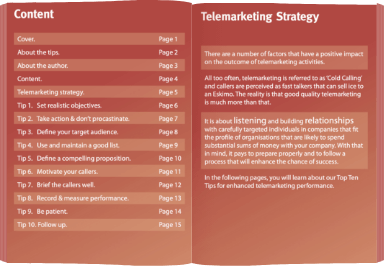Uncertainty is the new norm
There is a feeling of uncertainty all around us. We live in uncertain times. We have Brexit and we need to work out what the implications are for our business and personal circumstances. There’s a rise of nationalism across the globe. The rise of America (and other nation states) First. Power struggles between east and west. Instability across the globe. There’s a wave of rejectionist and anti-establishment feeling in many places where people are voting with their feet against the status quo and against austerity and for change. We have increasing inflation and a national (global) debt that isn’t decreasing.
Worryingly, there’s a disaffected youth and a lack of true leadership with a plan. The recent general election has hardly helped. In the UK, we have a hung parliament with no mandate, and especially no mandate for Brexit negotiations, in particular, can lead to paralysis. None of this can be good for business and it leads to uncertainty for everyone that may well lead to lower consumption. And, for GDP to grow and the government coffers to swell with tax revenues, we need consumption. Without growth, social and infrastructure policies cannot work.
It’s not all doom and gloom
Phew. I’m glad I got that off my chest.
But, it’s not all doom and gloom. In the UK, growth is still predicted albeit at a slower rate than in the past few years. Even in the worst of economic times (perhaps The Great Depression aside), people prosper. Not everyone, I grant you. But individuals and businesses still need stuff. Against this backdrop, companies must continue trading. Business owners and managers need to make important decisions that will affect business and personal prosperity. This, in turn, impacts on workers’ jobs and individual prosperity.
Sadly, no one holds all of the cards. No one has all the answers. Politicians don’t know and economists don’t know. They can make educated guesses but, we’ve seen all too regularly on recent times, those predictions can be wrong. In the last recession, predominantly as a consequence of business customers and consumers tightening their belts, small businesses cut back to protect
what profit they had. They were in survival mode. Sadly, many didn’t survive.
However, the world we live in today is different. There has been a proliferation of smaller businesses that are more nimble and less reliant on one source for supply and business. Technology has enabled businesses to compete more efficiently with less overhead.
Tips for an Uncertain World
So, what should small business owners do? Below are our tips for survival in an uncertain world.
1.Work out a plan
This expression is so overused that it almost becomes boring. However, if you don’t know how to get to your destination, how will you get there? Even if you’re headed by car to Scotland from London, if you head north, you’re more likely to reach the Scottish border than if you head south from the outset. And, when you reach Scotland, you may well arrive at somewhere lovely for a stopover.
The point is that you need clarity of objective and destination. That means sales targets, profits and a whole host of other indicators to assess whether your business is on track. You won’t be able
to control all of the variables but if you stick your head in the sand, you certainly won’t see the way ahead. So, start your plan today.
2. Look for opportunities
There are several questions that you might ask to help focus the mind on potential sources of opportunities. These include:
-
-
- Where can you most successfully compete?
- How can you define your target audience?
- Are there products and services you could cross-sell or upsell to current customers?
- Have you asked for referrals from current customers to people they know?
- Are there niches in which you operate where you could gain competitive advantage?
- Where do you stand out against your competitors in product or service terms?
-
These are far from exhaustive. Sometimes, a SWOT analysis and/or PESTEL (Political, economic, social, technological, environmental and legal) analysis can help to flush out some of these areas. So, perhaps have a brainstorming session with colleagues to shape your plan (see above) and to identify what you can do to take stimulate business opportunities.
3. Find ways to become more efficient
Whilst this doesn’t always mean cost-cutting, it does mean concentrating on more effective activities and finding ways to make activities more effective. What makes the difference? What are priority tasks? It is often said that we shouldn’t sweat the small stuff. It’s easy to become distracted but, in uncertain times, it becomes even more important to focus on what drives, sales, margins, and profitability. Focus on your customers and these aspects of your business and you won’t go far wrong. That means also looking at automation. That should never take the place of human contact, especially where your value of sale demands person to person interaction. However, look at ways that you can become more efficient and enhance customer contact through automation and technology. That could mean a CRM system to improve communication or marketing automation to ensure customers are updated via email newsletters and the like or live chat on your website. Whatever it is for your business, use technology to support growth in your business.
4. Find ways to add value
What additional aspects to what you offer adds the most value to clients? Do you alleviate pressure on their workload? Do you provide information that’s essential for their operation? Does what you provide make your project sponsor look good to his or her peers? Work out what adds value and you’ll be more likely to be seen as a trusted adviser. At GSA, we provide great reporting that is shared on Google Drive so customers are always in control and always have everything at their fingertips. That means we de-risk the solution compared to many competitors that are less transparent. Of course, great results and products that do what they say they should are vital. But, identify what else adds value and your client retention will be much higher. How can you give truly great service that builds advocates, not customers? If you find out how to do that and do it consistently, you’ll also gain more word of mouth recommendation and lower your costs of new customer acquisition.
5. Do your research
I don’t necessarily mean market research. However, I am a bit of a research freak. I believe that businesses should understand their marketplace. That means both their customers and competitors and triggers and impacts on the business. For example, there is new data protection legislation coming in 2018 that will impact marketing providers. We need to know about that. And, social media has had a huge impact on communication in our world. Likewise, how happy are your clients? Periodic formal customer satisfaction research can inform all manner of decisions and make customers feel loved. An independent research exercise will also flush out issues that customers would never tell a sales person face to face. Do it early enough and regularly enough (perhaps twice a year) and you’ll generally pick up issues before the damage is done.
6. Focus on growth
Sound simple doesn’t it. The fact is that, in uncertain times, your competitors may be less active. There may also be less business floating around to share out. That means it’s the survival of the fittest. We spoke above about looking for opportunities. It’s also about being proactive and identifying those marketing and sales activities that deliver growth. My role is marketing and business development. Therefore, my priorities are very clear. These include for example:
-
-
- Making my designated new business calls every day and not missing any
- Emailing those prospects and customers I haven’t reached every day
- Posting a LinkedIn and Twitter update every morning upon arriving at the office
- Religiously writing a blog every Tuesday morning
- Shooting 2 new videos every month
- Attending a relevant networking event with a good speaker at least twice a month
- Researching new marketing tools and methods once a week
-
7. Build your network and become social
Today’s world is all about peer networks. And, word of mouth has gone online. You only have to look at the strength of networks such as Facebook and Linkedin amongst many others to understand that we live in a world where we do two things consistently, namely ‘ask a friend’ and Google for information. Therefore, it’s imperative that you build networks so your customers can find you. Make sure that your business network on LinkedIn is the right profile. Make sure your profile itself is robust. And, connect, connect, connect. Support that by providing useful content that you post regularly on the networks where your customers are present. That way, you’re more likely to reach them either directly or through others sharing your messages. But, don’t forget that it isn;t about ‘sales’ messages. As mentioned above, it’s about adding value. So, produce ‘How to’ guides and answer questions that concern your prospective customers. By doing so, you’ll magnify your credibility, extend your reach and, potentially, access a wider audience for your services.
Sadly, due to time, there are lots of things I don’t do but we all have to prioritise. And, I prioritise business development activities that I feel will support growth. What do you do to ensure the same? What are you doing to create more certainty in these uncertain times?
GSA helps businesses, large and small, become more effective in their marketing and business development. We run outbound telemarketing campaigns into the UK, Europe and further afield. Also, with our experience, we provide telemarketing training to help sales teams improve their results. If you’d like to know more, give us a call.






